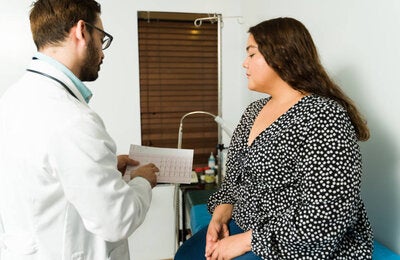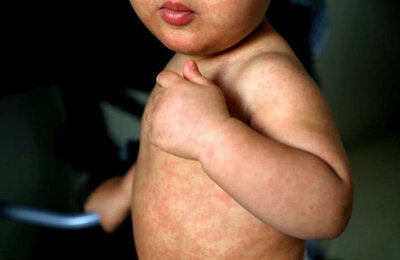
 In a most welcomed recognition of internationally agreed upon development goals, the U.S. government has renewed its commitment to the health of women and girls around the world. The renewed commitment was expressed by U.S. Secretary of State Hillary Clinton in remarks commemorating the 15th anniversary of the International Conference on Population and Development (ICPD), known as the Cairo Conference.
In a most welcomed recognition of internationally agreed upon development goals, the U.S. government has renewed its commitment to the health of women and girls around the world. The renewed commitment was expressed by U.S. Secretary of State Hillary Clinton in remarks commemorating the 15th anniversary of the International Conference on Population and Development (ICPD), known as the Cairo Conference.
In a most welcomed recognition of internationally agreed upon development goals, the U.S. government has renewed its commitment to the health of women and girls around the world.
The renewed commitment was expressed by U.S. Secretary of State Hillary Clinton in remarks last week commemorating the 15th anniversary of the International Conference on Population and Development (ICPD), known as the Cairo Conference.
In her Jan. 8 remarks, Secretary Clinton promised new U.S. support for efforts to meet the goals set by the Cairo Conference and the Millennium Development Goals, particularly those focusing on women and girls.
"We welcome Secretary Clinton's support for these very important goals on women's health," said PAHO Director Dr. Mirta Roses. "We know that women's health and well-being are critical to the health and well-being of families and communities, as well as to countries' economic and social development. We also know that the best approach to women's health is a comprehensive one that includes effective and affordable reproductive health services."
At the 1994 Cairo Conference, 170 countries endorsed the goal of ensuring the basic right of all couples and individuals to attain the highest standard of sexual and reproductive health, including the right to decide freely and responsibly the number, spacing, and timing of their children and to have the information and means to do so.
Secretary Clinton noted in her speech that 15 years later, millions of women worldwide still lack access to reproductive health services, including family planning and maternal health care. This contributes to unacceptably high rates of maternal mortality and prevents women from participating fully in the life of their communities.
In the Region of the Americas, more than 20,000 mothers die every year during pregnancy and childbirth. Many of these cases involve adolescent pregnancy or complications of unsafe abortions.
PAHO has already been working with the U.S. government to reduce morbidity and mortality among women and to improve their health during key stages of life, including pregnancy, childbirth, the neonatal period, childhood and adolescence, and to improve sexual and reproductive health and promote active and healthy aging for both women and men.
"Reproductive health should not be seen in isolation, but should be part of a continuum of care," said Dr. Gina Tambini, head of PAHO's Family and Community Health program. "This means involving all health programs, services, providers and members of the community to better tackle the challenges posed by these issues."
Among PAHO initiatives focused on women's health is the Regional Initiative for the Elimination of Mother-to-Child Transmission of HIV and Congenital Syphilis in Latin America and the Caribbean. Launched in 2008 by PAHO, UNICEF, and UNAIDS, it seeks to eliminate vertical transmission of HIV and congenital syphilis by 2015 through prevention and treatment. Currently only 54 percent of pregnant women with HIV in the region receive antiretroviral treatment to prevent mother-to-child transmission of the virus, while 450,000 cases of gestational syphilis occur in pregnant women in the region each year. As part of its action plan, the initiative calls for strengthening health systems overall and integrating HIV health services with services for sexual and reproductive health, neonatal health, and family and community health.
PAHO is also spearheading the Regional Strategy and Plan of Action for Cervical Cancer Prevention and Control. It promotes better access to and quality of screening and treatment services to reduce the estimated 86,000 new illnesses and 33,000 deaths from cervical cancer in Latin America and the Caribbean each year.
PAHO was established in 1902 and is the world's oldest public health organization. It works with all the countries of the Americas to improve the health and quality of life of the people of the Americas and serves as the Regional Office for the Americas of the World Health Organization (WHO).
For more information please contact: Paulo Lyra, Advisor on Social Communication, Tel. 202 974 3937.



